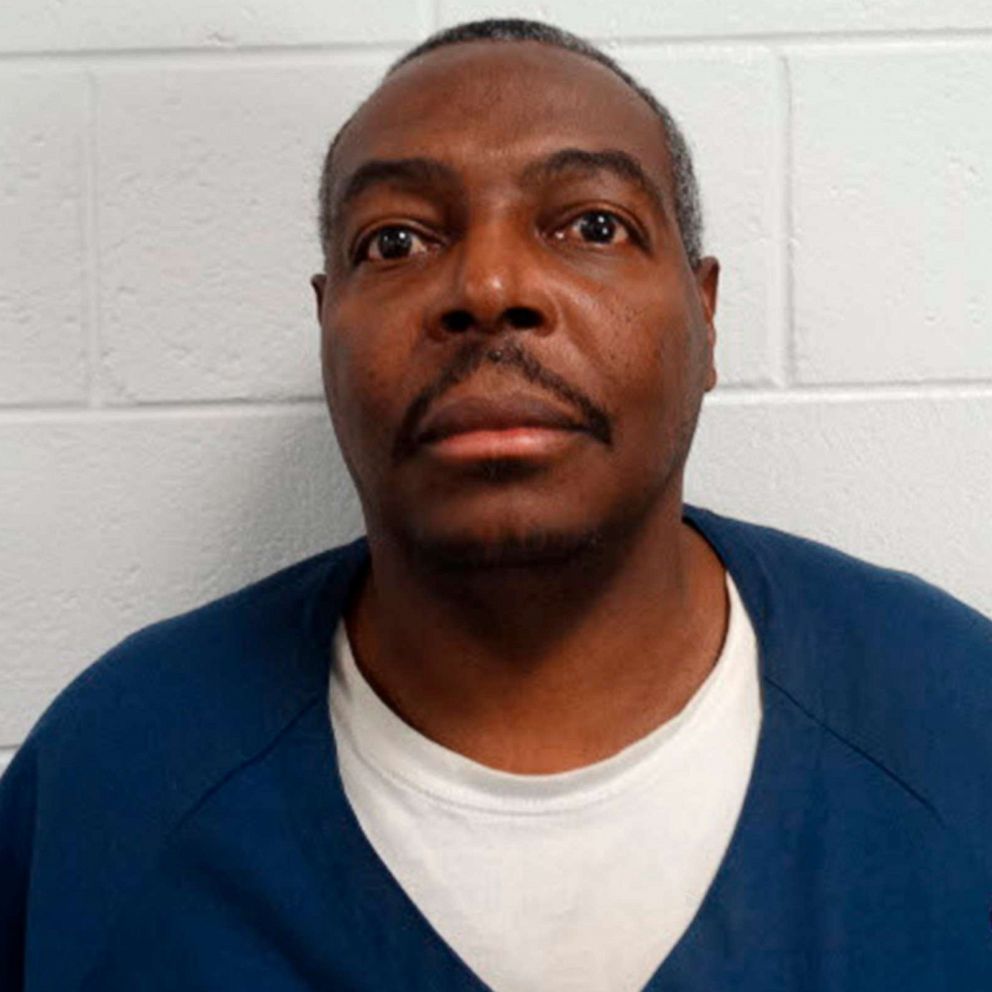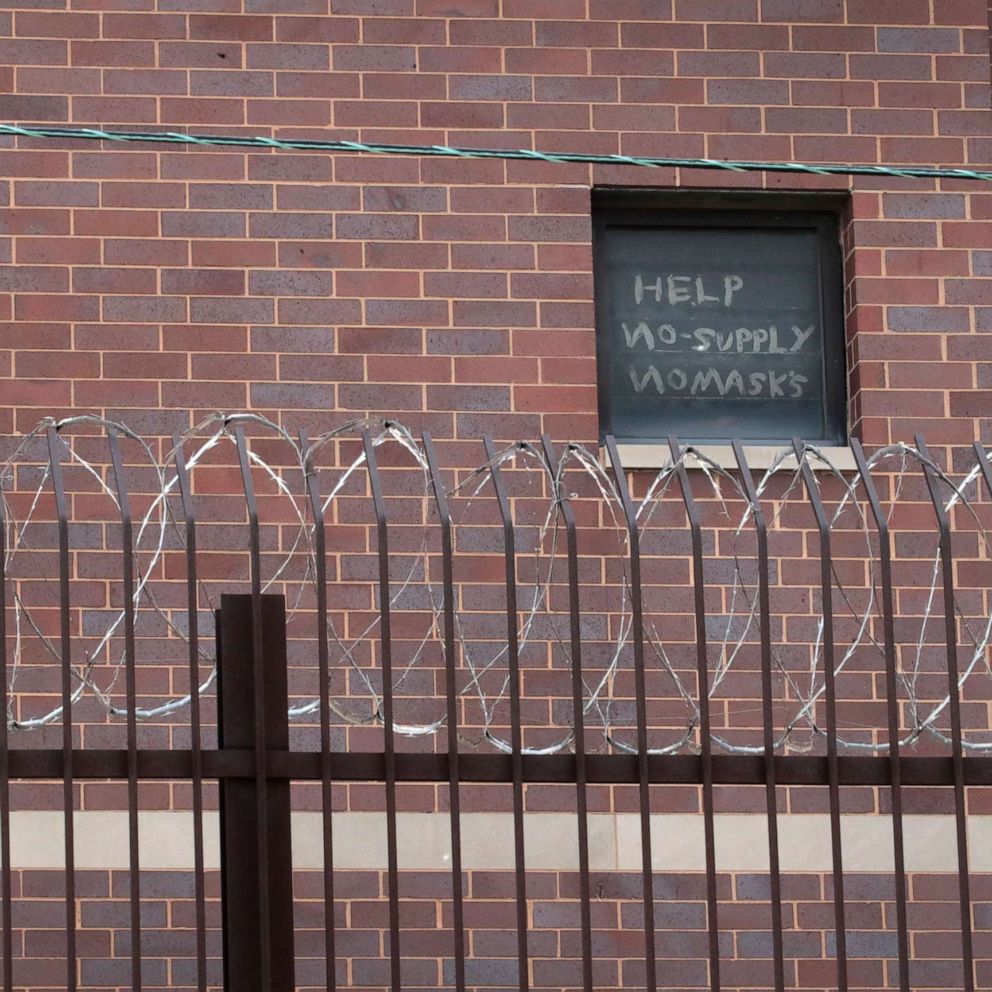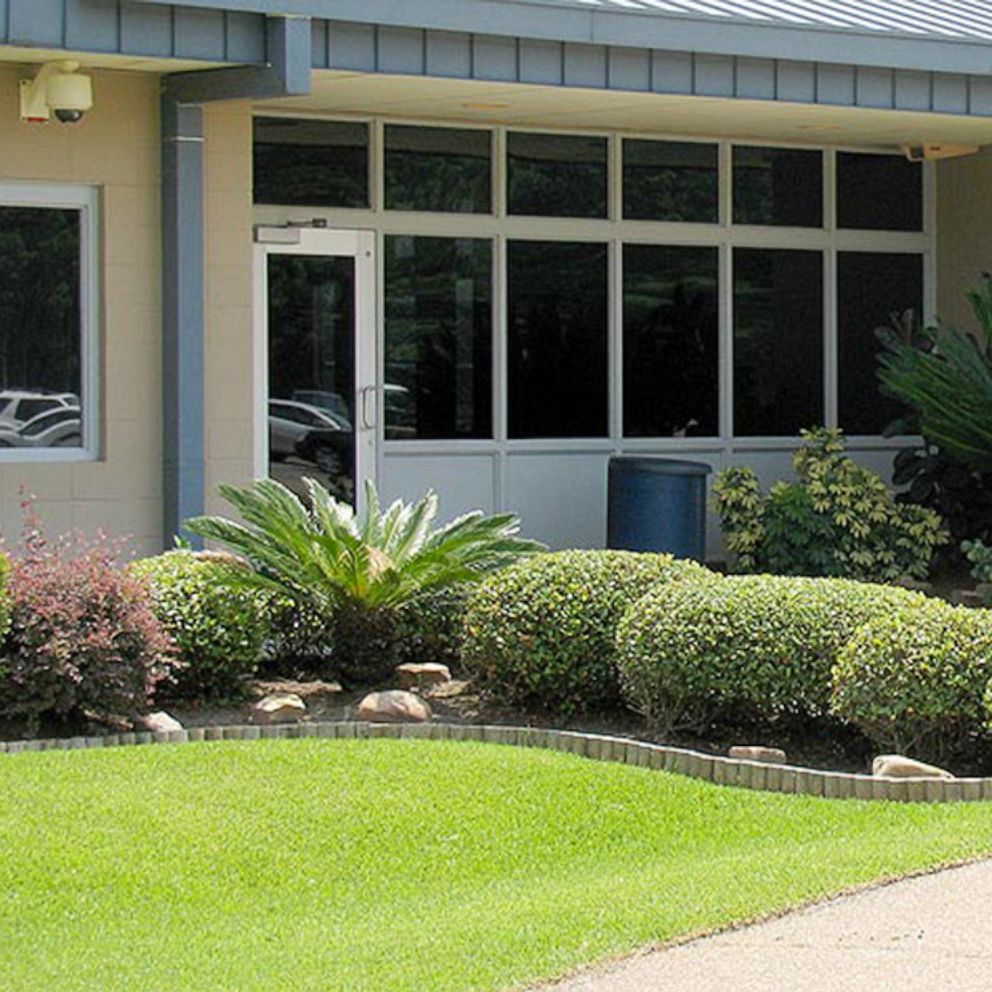COVID-19 outbreak infecting over 500 prisoners may have come from staff: Medical director
Of the 588 coronavirus cases in all of Bledsoe County, 583 were at the prison.
A novel coronavirus outbreak that has sickened 583 inmates at a Tennessee prison could to have come from members of the staff, according to the facility's medical director.
The alarming cluster of infections at the Bledsoe Correctional Complex in Pikeville, Tennessee, accounts for 99% of the 588 total positive cases of coronavirus in all of Bledsoe County, according to the Tennessee Department of Corrections and the state Department of Health.
Dr. Kenneth Williams, medical director for the Tennessee Department of Corrections, said he suspects the spread of the contagion at the prison, which houses more than 2,300 inmates, was started by the staff.
"The uncomfortable answer for those asking really [comes] back to the community and the folks that work at the prison," Wiliams told ABC affiliate station WTVC in Chattanooga, Tennessee, on Monday.

But Dorinda Carter, spokeswoman for the Tennessee Department of Corrections, added that Williams has told prison officials that he cannot say definitively that the virus was brought into the prison by an employee.
"He actually said the virus is everywhere and is easy to move from person to person because many people are asymptomatic," Carter told ABC News on Tuesday. "He said we can't pinpoint exactly how it [coronavirus] came into Bledsoe prison. He said no one is to blame because it is a highly contagious virus."
Carter said corrections officials did some mass testing and contact tracing of inmates at several prisons statewide.
"Oddly, between 80% and 90% of those who tested positive are asymptomatic," Carter said.
The number of cases at the Bledsoe prison has more than tripled since April 20 when corrections officials reported 162 positive coronavirus cases at the facility. The first positive coronavirus case at Bledsoe was confirmed on April 12, Carter said.
Data released on Tuesday by the Tennesee Department of Corrections shows that all 2,322 inmates at the prison have been tested for the virus and that 1,703 prisoners tested negative. Tests results are pending for 36 inmates, officials said.
In all of the state's 24 prisons, including four that are privately run, a total of 756 inmates have tested positive making the outbreak at Bledsoe by far the worst in the state and one of the biggest for a U.S. prison.
It remains unclear how many employees at the Bledsoe prison had contracted the virus, formally known as COVID-19. Corrections officials will only say that 38 prison staff members statewide had tested positive as of Tuesday afternoon.
Pikeville Mayor Philip Cagle said he found it troubling that prison officials will not say if any of the infected prison staff members live in his community.
"The question I would have is how many employees have been tested positive and how many of those employees are from Bledsoe County?" Cagle told WTVC.
Williams, however, said it's irrelevant how many prison staffers live in the surrounding community, which is about 60 miles north of Chattanooga.
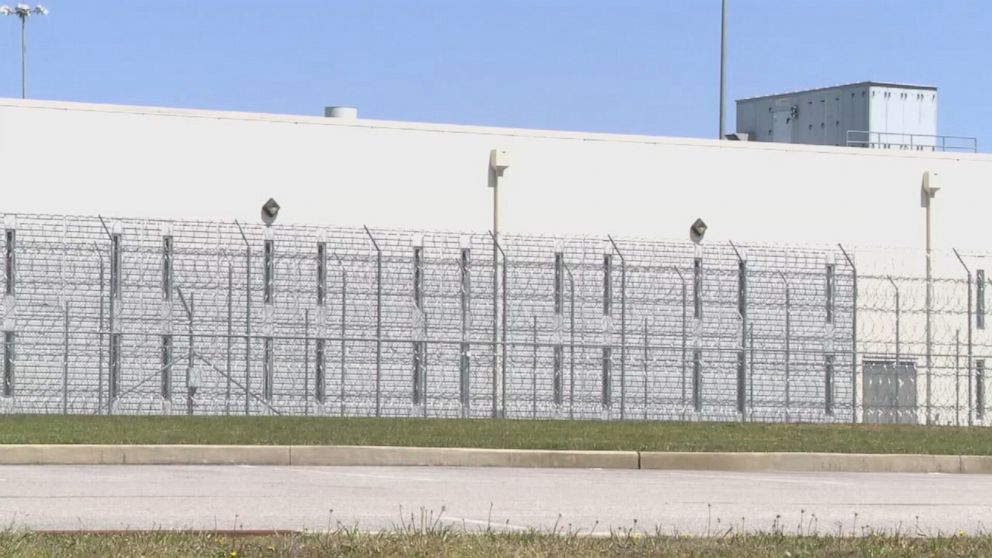
"That perception is misguided in the fact that where it will actually start is not in the prison and then come out into the community. It is, in fact, the other way around," Williams said.
Carter said corrections officials have taken steps in an attempt to blunt the virus in the state's prisons, including providing inmates and staff with masks. They are also screening everyone entering the facilities for symptoms, including checking people for fever and labored breathing.
She said inmates throughout the prison system have made 93,000 protective masks that have been distributed to staff, local jails, sheriff departments and health care workers throughout the state. She added that inmates are also manufacturing face shields and protective gowns for medical personnel in the prisons and at hospitals.
She said that early in the pandemic, corrections officials halted visitations and intake of new prisoners.
Carter said prisons have also ramped up cleaning multiple times a day of high-touch areas, including doorknobs, railings, phones, light switches, elevator buttons, hand-held radios, security keys, identification badges and even pens and pencils. She also said cleaning has been increased in shared workspaces used by staff at shift changes.
"I think we are, like everybody, trying to do as much as you possibly can in a prison environment to keep people as safe as possible," Carter said.
The outbreak is the latest to occur in prisons and jails across the country, leaving officials scrambling on how to reduce the population of inmates and institute social-distancing practices in facilities.
One of the worst outbreaks has occurred at the Marion Correctional Institution in north-central Ohio, where 2,028 of the 2,500 inmates and 169 employees have tested positive for coronavirus, according to the Ohio Department of Rehabilitation & Correction. Four inmates have died at the prison after contracting the virus, officials said.
Another major outbreak has occurred at Pickaway Correctional Institution in Orient, Ohio, where more than 1,500 inmates and 81 staff members have been infected, according to officials. Eleven prisoners and one staff member at the Pickaway prison have died from the virus, officials said.
In Arkansas, at least 670 inmates and 10 staffers at the Cummins Unit prison in Grady, Arkansas, have also tested positive for coronavirus, state officials said last week.
A federal lawsuit has been filed by 11 elderly Arkansas state prison inmates seeking an immediate release from confinement alleging that officials are violating their rights by keeping them in close quarters without enough proper hygienic equipment. The lawsuit was filed by the American Civil Liberties Union and the NAACP Legal Defense and Educational Fund on behalf of inmates at Cummins and two other Arkansas prisons.
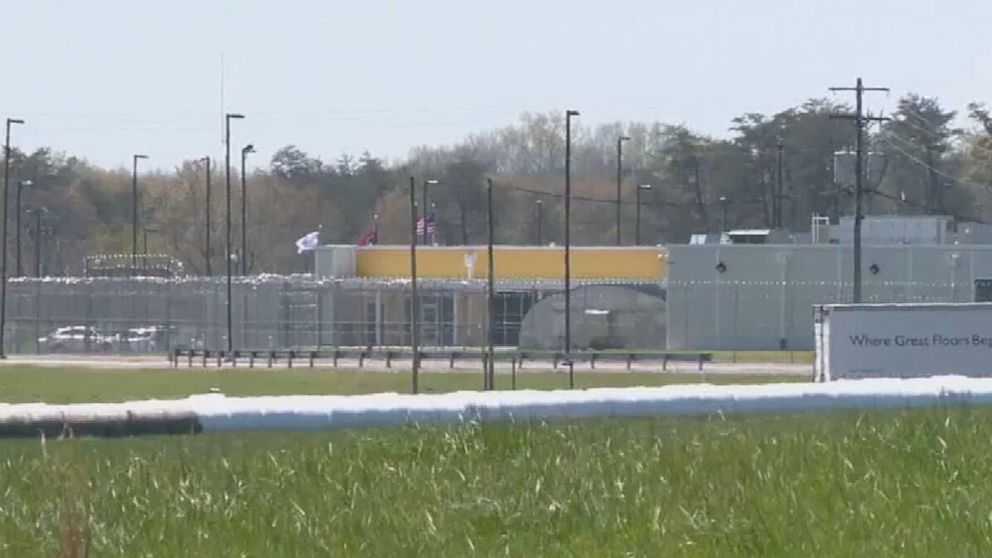
On Monday, lawyers for the prisoners asked a federal judge to require Arkansas prison officials to immediately implement social-distancing and sanitation measures to slow the spread of the virus.
"If preventative measures are not taken immediately, hundreds of additional incarcerated people and staff in [Arkansas Department of Corrections] facilities throughout Arkansas will likely contract the virus," attorneys for the inmates argued in their motion, noting that the number of infected inmates had grown by more than 500% in the previous 10 days.
Arkansas Gov. Asa Hutchinson and state Attorney General Leslie Rutledge said at a news conference last week that prison and health officials are taking effective measures to protect the inmates.
The governor expressed "full confidence" in Arkansas Secretary of Health Dr. Nate Smith and state Department of Corrections Secretary Wendy Kelly are going to "extraordinary lengths" to protect the safety of inmates.
Smith suggested that controlling the coronavirus is easier to do in prisons than in the community.
"Once you know who's positive, who's negative, who's exposed and who's not exposed, a prison setting is probably the ideal setting to control an outbreak," Smith said.
What to know about the coronavirus:
- How it started and how to protect yourself: Coronavirus explained
- What to do if you have symptoms: Coronavirus symptoms
- Tracking the spread in the U.S. and worldwide: Coronavirus map
Tune into ABC at 1 p.m. ET and ABC News Live at 4 p.m. ET every weekday for special coverage of the novel coronavirus with the full ABC News team, including the latest news, context and analysis.
